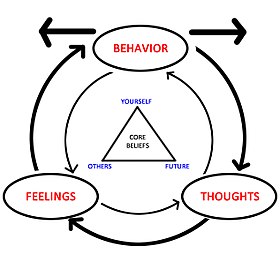The “Four Laws of Growth,” a framework often used in personal development and leadership, can be summarized as Intentionality, Awareness, Self-Value, and Reflection. These laws emphasize the importance of purposeful growth, understanding oneself, recognizing one’s worth, and critically examining experiences for learning and improvement.

Speak Less:
Instead of constantly sharing your thoughts and opinions, focus on demonstrating your capabilities and achieving results. Your actions and outcomes will speak volumes.
Listen More:
Active listening is crucial for learning and understanding others. By paying close attention to what others say, you gain valuable insights and knowledge, fostering personal and professional growth.
React Less:
When faced with challenges or difficult situations, avoid impulsive reactions. Take time to pause, assess the situation, and respond thoughtfully and strategically.
Observe More:
Pay close attention to your surroundings, people, and situations. Observing allows you to gather information, understand patterns, and make informed decisions, leading to better outcomes.
Here’s a comprehensive hypnotherapy script to help you implement all four laws:
Induction
(Soft, calming music plays in the background)
“Welcome to this hypnotherapy session, where you’ll integrate the Four Laws of Growth: Speak Less, Listen More, React Less, and Observe More. Allow yourself to relax, getting comfortable and cozy. Take a deep breath in… and out… Feel your body letting go of any tension, starting from your toes, moving up to the top of your head. With each breath, feel yourself becoming more relaxed, more focused.”
Deepening
“Imagine yourself standing in a serene environment, surrounded by calming sounds. With each breath, feel your feet connecting with the earth, grounding you. As you inhale, visualize fresh, calming air filling your lungs. As you exhale, imagine any stress, anxiety, or old habits leaving your body. Allow yourself to let go of the need to react impulsively, to speak excessively, or to judge prematurely. Simply be present in this moment, open to growth and transformation.”
Suggestion
“As you continue to breathe deeply, repeat the following phrases to yourself:
* ‘I speak less, I use my words sparingly.’
* ‘I listen more, I wait for the invitation’
* ‘I react less, I respond more thoughtfully.’
* ‘I observe more, I see and understand more.’
Allow these words to sink deeply into your mind, becoming a part of your inner wisdom. Imagine yourself integrating these four laws, becoming more effective, more empathetic, and more insightful.
Visualization
“Imagine yourself in various situations, applying the Four Laws of Growth.
See yourself:
* Speaking less, bring peace and calm to the situation.
* Listening more, and understanding others’ perspectives and see there truth.
* Reacting less, responding more thoughtfully, and resolving conflicts more effectively.
* Observing more, noticing subtle cues, and gaining deeper insights allow it to show up as wisdom.
Visualize yourself becoming more confident, more composed, and more successful in your personal and professional life.
See yourself building stronger relationships, making better decisions, and achieving greater success.
Specific Suggestions for each Law
* ‘Speak Less’: Imagine yourself pausing before speaking, considering your words, and choosing to communicate more effectively.
* ‘Listen More’: Visualize yourself focusing on others, hearing their concerns, and responding with empathy.
* ‘React Less’: See yourself taking a deep breath, pausing before reacting, and responding more thoughtfully.
* ‘Observe More’: Imagine yourself noticing details, patterns, and connections, gaining deeper insights and understanding.
Anchoring
“To reinforce these new behaviors, I’d like you to create a physical anchor. Whenever you want to remind yourself of the Four Laws of Growth, gently touch your:
* Thumb and index finger for ‘Speak Less,
* Middle finger and thumb for Listen More’
* Ring finger and thumb for ‘React Less’
* Pinkie finger and thumb for ‘Observe More’
As you do this, repeat the corresponding phrases. This simple gesture will help you access these mindsets, allowing you to stay focused on your goals.
Counting Up
“As you slowly come back to full awareness, take a deep breath in… and out… Feel refreshed, renewed, and more mindful of the Four Laws of Growth.
When you’re ready, open your eyes, and remember to use your physical anchor whenever you need to remind yourself to:
* Speak less,
* Listen more,
* React less,
* Observe more.
Wake-Up
“Take one final, deep breath in… and out… When you’re ready, slowly open your eyes, feeling more centered, more focused, and more equipped to implement the Four Laws of Growth.
Remember, with consistent practice, you’ll become more effective, more empathetic, and more successful in all areas of your life.”
Here is all Four Law’s of Growth:

 We will focus on Cognitive Behavioural Therapy.
We will focus on Cognitive Behavioural Therapy.